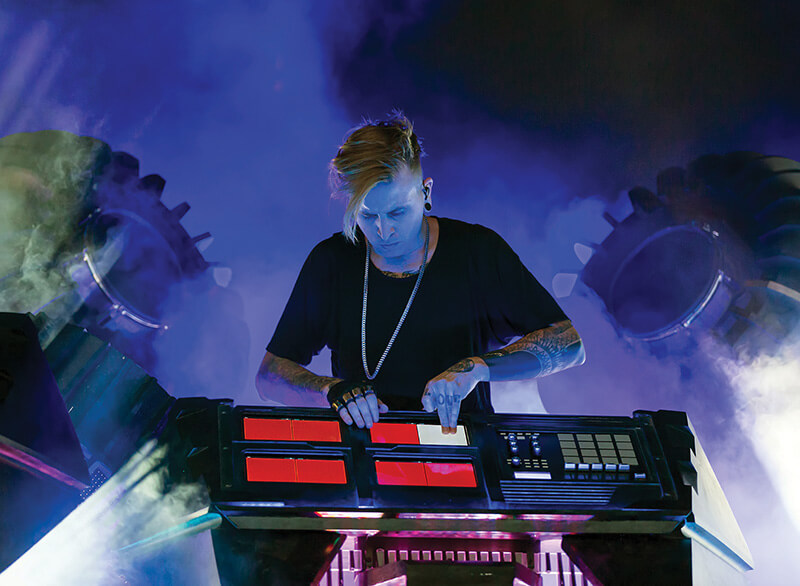Everyone I talk to in the music industry these days is truly uncertain about the near-term future of music. Oh, you’ll find some who are optimistic about venues reopening “safely,” just as you will find some that say live music won’t return until next spring. You can find some who are saying that sync (licensing music for TV, movies, ads, and games) is exploding right now, just as sure as you will find some who say that without new productions the sync game is a bit dormant. Same for streaming: more people with more time should mean racking up massive stream counts for everyone, but others are pointing to rising numbers in audiobooks and podcasts as the driving force of those larger MAUs.
The fact is: we don’t know.
Just like this damn virus, we really don’t actually know much for sure.
We don’t know whether clubs and venues will be able to subsist on very limited capacity and demand and for how long. We don’t know whether consumer listening and streaming shows will be a blip or a sustained change in behavior. We don’t know whether entertainment productions which rely on underlying music will be ramped up quickly enough to truly get back to a sustainable model of sync for licensors and composers.
That sucks, right?
Musicians are naturally an optimistic bunch. Hell, we’ll drive halfway across the country in hopes of a half sold out show, we’ll blow $8-15k of our own money on a recording that we hope people will buy, listen to, or at the very least give a damn about. And now, as some bars and venues slightly reopen with limited capacity and outdoor patios, tons of players are willing to risk it just to play live in front of actual live people (rather than a phone that’s live streaming from a basement).
So, what’s the truth? As with everything, it lies somewhere in the middle. Clubs will try putting on these limited shows and yes, some fans will come out and support. Will your band be able to book out 6 months in advance like normal? No. Will you be able to go on tour anytime soon? Not a chance. You may see a small bump in streaming numbers from a certain percentage of fans, but keep in mind, your fans are also getting hooked on new podcasts and Spotify is still suing to prevent songwriters and publishers from making more money.
Here’s what we do know. Music will survive. It always has. During the pandemic 100 years ago, these same questions were raised, believe it or not. Opera houses and musicals were shut down, as were small musical outfits. But lo and behold, it gave way to the Roaring ’20s, when Jazz, Big Band, Blues, and Broadway exploded.
There will be live music again.
There will be a recording industry, people will stream, TV shows will need licensed songs. Even though the phonograph was invented in 1877, it wasn’t until the 1920s right after a global pandemic when independent record labels and new acoustic recording technology was invented which paved the way for records to take off. Coupled with an explosion in radio and ASCAP, the modern music industry as we know it can be traced right back to the 1920s after the last great global pandemic. There will be recorded music, and it will flourish.
We are a country driven by entertainment; productions will come back. They will need great music to place in the shows, games, movies, and yes, even ads. Except these ads won’t just be filled with sad piano chords under narrators somberly saying, “In these challenging times, we’re with you” and other such crap. Pretty sick of THAT commercial, which seems like EVERY commercial.
I’m going to be brutally honest with you though, not everyone is going to make it. Many venues and probably most small clubs won’t survive past the fall unless something drastically changes in terms of a vaccine or treatment. The demand just will not outweigh the risk. By the way, go support National Independent Venue Association (NIVA) at www.nivassoc.org and do what you can to help.
Some small studios and filmmakers won’t make it. Some gaming companies will be swallowed by bigger ones for the IP.
When live music comes roaring back, people will demand the best of the best; “good” won’t do. With fewer venues, fewer gigs and lower budgets, the bands that guarantee a draw will be first in line for bookings, and in some cases, that means a stable of safe cover or tribute bands. But there will be a desire for new, exciting, independent, sweaty, and sexy music. Right now, pretty much every big tour planned for this summer is already booked for the same date next year. So, sorry, I know it’s a huge letdown, but you will not be able to play Red Rocks or Wembley until 2022 at the very earliest, no matter how big your next EP hits!
The point is to be optimistic, but also realistic. Don’t try to push your band or your fans too hard right now. Everyone has to deal with this in their own way. Take care of your own music community, pay attention to the changes in public policy. This is a perfect time to get your music prepared for licensing. Write and produce something new, not with the intention of putting it out, but just to be alive and awake in this time as an artist. It’s going to take patience, but music will come back, and if history teaches us anything, it may be better than ever.
No one is sure how long this virus crap will last, but I know how long music will: forever.
ABOUT THE AUTHOR
–Michael St. James is the founder and creative director of St. James Media, specializing in music licensing, publishing, production and artist development.
